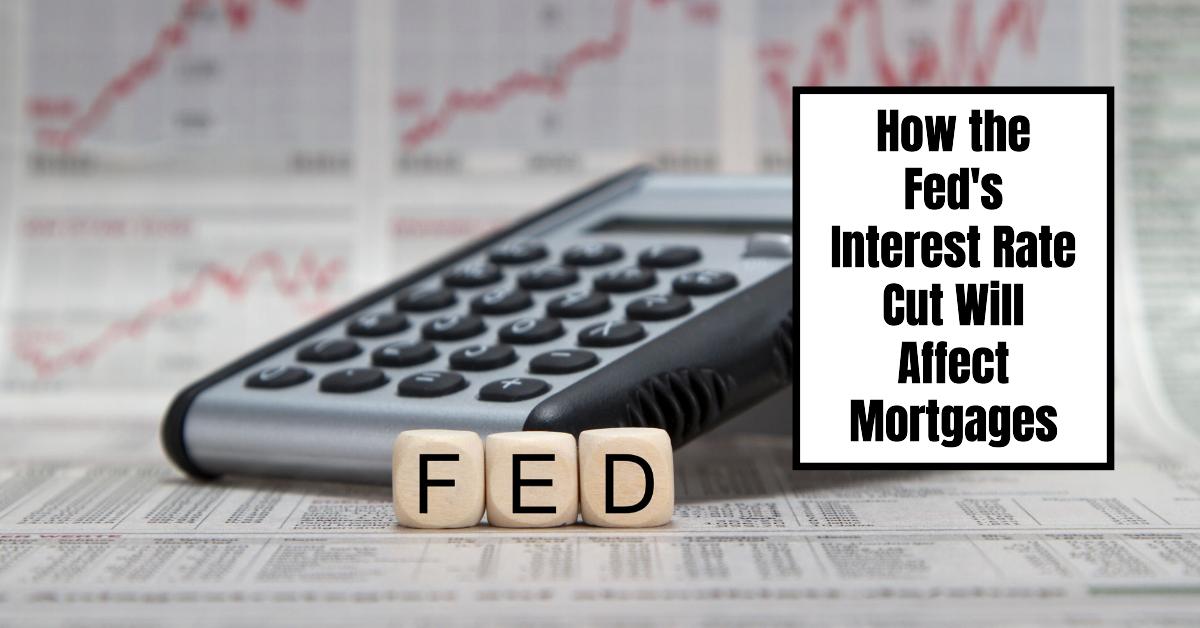Have you ever thought about how a seemingly small change in interest rates can affect everyone's financial well-being, especially if you are considering a mortgage? Predictions about how the Fed's interest rate cut will affect mortgages are especially relevant now, following the recent announcement of a surprising 50-basis-point cut on September 18, 2024.
This decision is not just a number; it has the potential to change the landscape of homeownership for many Americans. Let’s unravel what this means for you, your mortgage, and the overall housing market.
Predictions: How the Fed's Interest Rate Cut Will Affect Mortgages
Key Takeaways
- Significant Rate Cut: The Federal Reserve reduced the federal funds rate by a surprising 50 basis points, which has implications for mortgage rates.
- Potential for Lower Mortgage Rates: More affordable mortgage rates could make homeownership more accessible for many, especially first-time buyers.
- Complex Market Dynamics: While the Fed’s cut influences rates, mortgage costs are affected by various factors, including investor confidence and market conditions.
- Increased Competition in Housing: As more buyers enter the market due to lower rates, home prices may rise, impacting affordability.
The Fed’s decision to implement a 50-basis-point cut represents its first move in this direction since 2020. It’s notable that most economists had predicted only a 25-basis-point cut, making this a more impactful move than anticipated. Mortgage rates currently hover around 6.15%, and experts speculate that this may lead to even lower rates, creating an ideal scenario for borrowers eager to secure a home loan.
The Immediate Impact on Mortgages
The Fed's actions typically trickle down through various financial markets, including mortgage rates. A cut in the federal funds rate often results in more favorable borrowing conditions, including lower mortgage rates. This means that for those looking to buy a home or refinance an existing mortgage, lower rates could translate into smaller monthly payments.
However, understanding how exactly mortgage rates will respond is more complex. While the Fed's cut might initially lead to a drop in borrowing costs, multiple other economic indicators, particularly the yield on 10-year Treasury bonds, also influence mortgage rates. These yields can rise or fall based on investor sentiment, inflation forecasts, and other economic indicators, making it difficult to predict the exact outcome of the Fed’s recent actions.
A Win for First-Time Homebuyers
The Fed's interest rate cut could be a game changer for first-time homebuyers. Lower mortgage rates mean that more people can afford homes that may have been out of reach previously. With the prospect of reduced monthly payments, first-time buyers could take the leap into homeownership that they had been waiting for.
However, this potential affordability may come at a cost. As more individuals and families rush to take advantage of low rates, it could increase competition in the housing market. More competition means higher demand for homes, which can drive prices up and potentially lessen the benefits of lower mortgage rates.
The Role of Lenders and Market Temperament
The mortgage industry does not operate in isolation—instead, it exists within a broader economic system where the balance between lenders and borrowers is critical. While lenders are eager to lower rates to attract more business, they must also consider their bottom line. Pressure to maintain profitability may lead lenders to respond slowly to the Fed's moves, resulting in only gradual declines in rates rather than an immediate drop.
Homebuyers should also note that an uptick in applications may lead to longer processing times, as lenders may become inundated with inquiries. This could cause a delay in securing loans, which some might view as a hurdle in the wake of favorable rate changes.
Future Predictions for Homeowners
As we look ahead, predictions on how the Fed's interest rate cut will affect mortgages play a pivotal role for homeowners and potential buyers. The shifting landscape means that buyers contemplating their next steps must remain alert to changing market conditions. Those waiting for what they believe to be the perfect moment to buy may find themselves caught off guard if the market shifts unexpectedly. Interest rates can fluctuate rapidly based on various economic factors, meaning now may be the best time to act.
Moreover, a notable increase in buyer activity could lead to a tighter housing market, putting upward pressure on prices. This scenario is something potential buyers should consider: while lower rates can incentivize purchasing, rising home prices could diminish overall financial benefits.
Final Thoughts on the Impact of the Fed's Rate Cut
The Federal Reserve's decision to cut rates by 50 basis points is a significant move that has immediate implications for the mortgage market. Predictions about how the Fed's interest rate cut will affect mortgages suggest improved affordability for homebuyers, particularly first-timers, while cautioning about rising prices due to an influx of buyers.
Understanding the multifaceted impacts of the rate cut requires awareness of both economic indicators and market dynamics. Amid these changes, both existing homeowners and potential buyers must stay informed about evolving conditions. The best strategy may often be to be proactive in decision-making in this unpredictable market.
FAQs
Q1: How does a Fed interest rate cut affect mortgage rates?
While the Fed doesn’t set mortgage rates directly, a rate cut typically leads to lower borrowing costs in the market, including mortgages. This happens because lower rates make it cheaper for banks to lend money, which they often pass on to consumers.
Q2: Will all mortgage rates drop immediately following the Fed's cut?
Not necessarily. Lenders might take time to adjust their rates based on the Fed’s decision and may not reduce them in sync with the changes. Additionally, other factors, including bond yields, can affect how quickly and significantly rates fall.
Q3: Should I wait to see how low rates will go before buying a home?
Timing the market is notoriously difficult. While rates may drop, increased competition for homes could lead to higher prices, negating the benefits of waiting for lower mortgage rates. Acting sooner may be more advantageous.
Q4: What should I do if I currently have a mortgage?
If you have a mortgage, keep an eye on the market. Lower rates might present an opportunity to refinance, potentially reducing your monthly payments. Consulting a mortgage professional can help you navigate your options.
Also Read:
- Fed Just Made a BIG Move by Slashing Interest Rates to 4.75%-5%
- Market Reactions: How Investors Should Prepare for Interest Rate Cut
- How Low Will Interest Rates Go in 2024?
- Interest Rate Predictions for the Next 3 Years: (2024-2026)
- Interest Rate Predictions for Next 2 Years: Expert Forecast
- Impact of Interest Rate Cut on Mortgages, Car Loans, and Your Wallet
- Interest Rate Predictions for Next 10 Years: Long-Term Outlook
- When is the Next Fed Meeting on Interest Rates in 2024?
- Interest Rate Cuts: Citi vs. JP Morgan – Who is Right on Predictions?
- More Predictions Point Towards Higher for Longer Interest Rates



